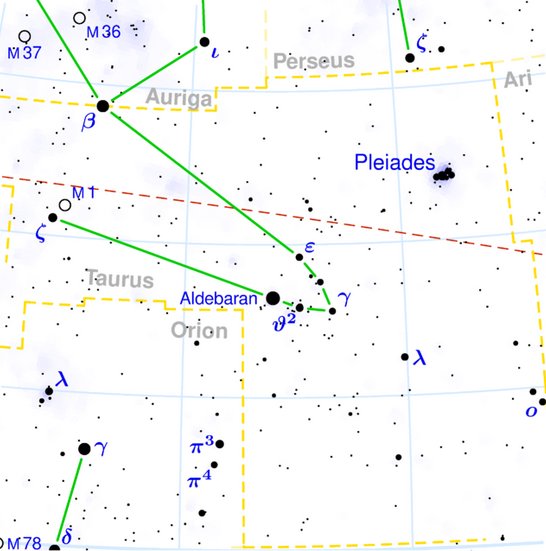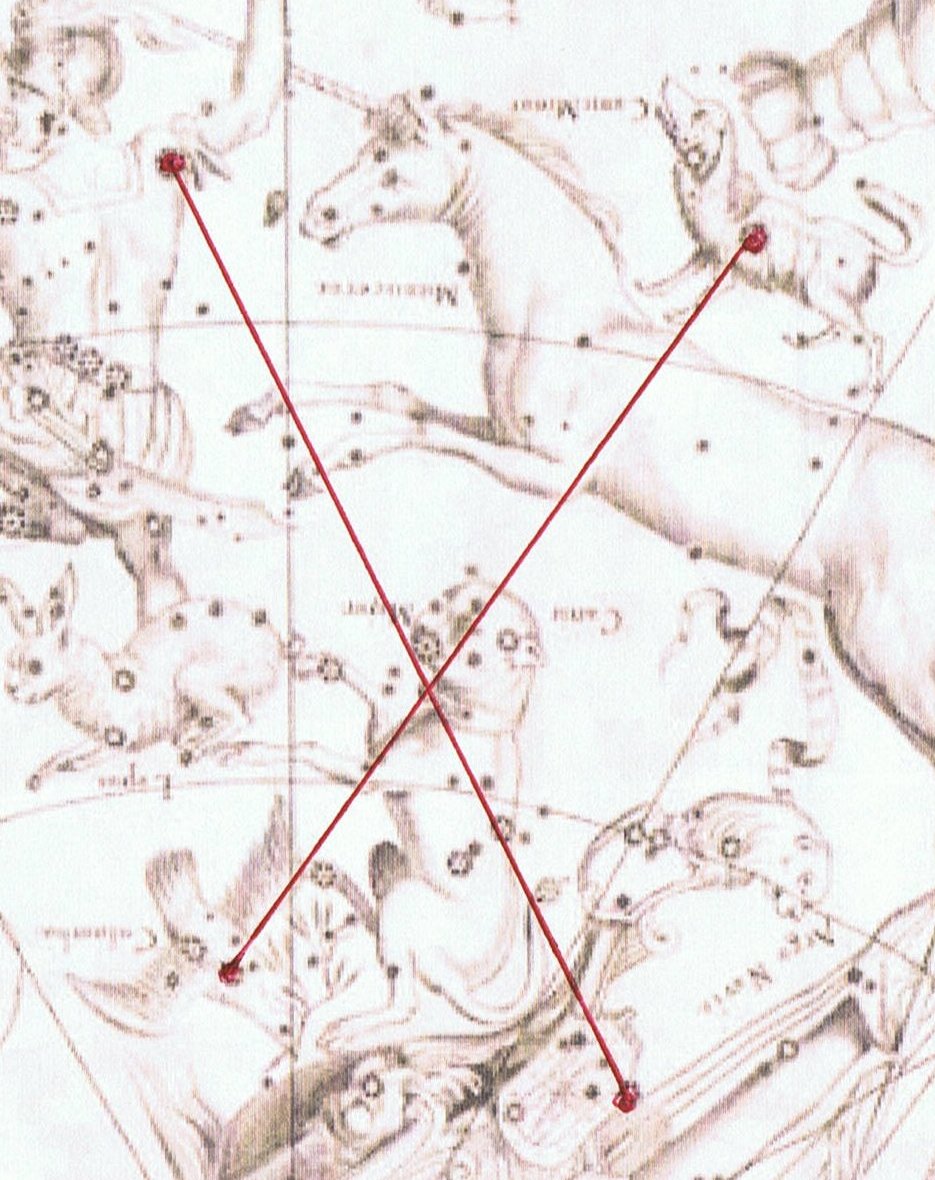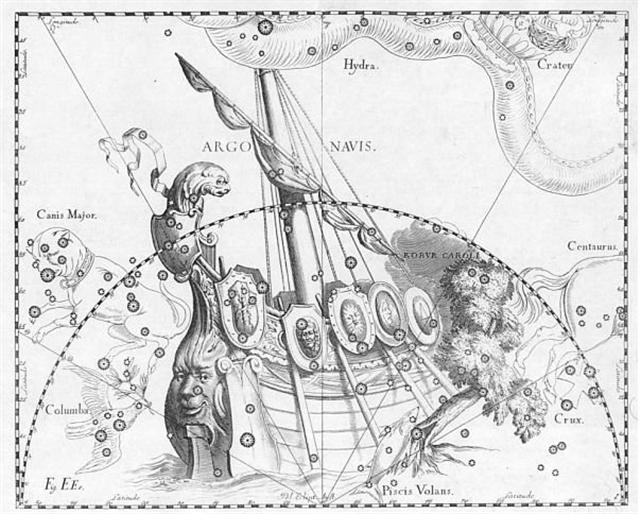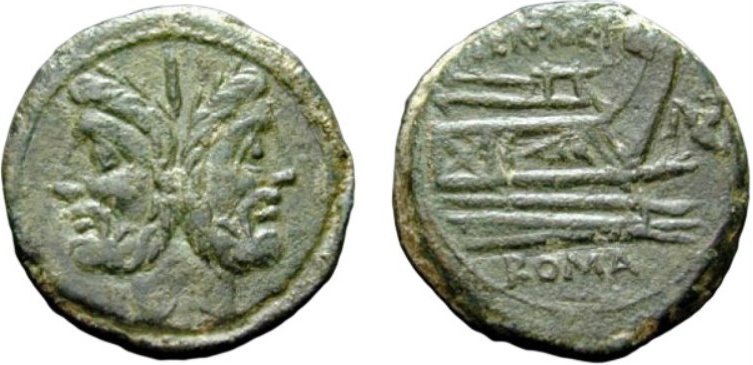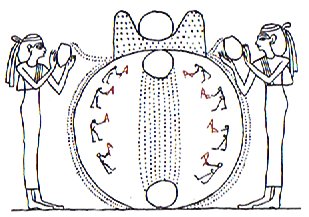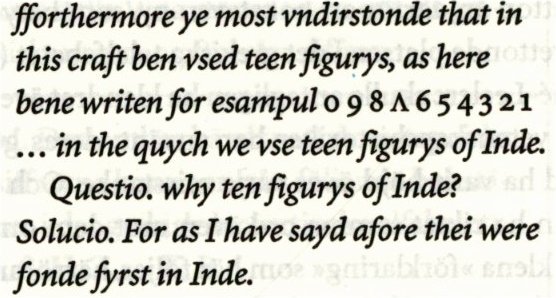109. Once again. We can count heliacal time in form of right ascension days (= glyphs) in both the G and the C texts. ... I.e., in both texts we should evidently define time heliacally. At Cancer time turned around and this was the 'birth place' of land (henua). At the Eagle the old ruler had to be lifted off and saved from the 'waters of the Nile', to be able to be back (reincarnate himself) half a year later ... My description of the place for birth (*) respectively for rising up towards the sky (†) fits rather well with the situation north of the equator at the time when the ancient connections between stars and seasons were established. On Easter Island the seasons were inverted. When the Sun was highly present in the summer north of the equator it was winter on Easter Island, and it was spring equinox when Sirrah was at the Full Moon. The G tablet, however, was donated to people of European descent, to the officers onboard the Chilean corvette O'Higgins. Therefore the G text could have been purposefully designed for their use north of the equator - side a of the tablet was beginning where once upon a time the Eye of the Sun had risen together with ε Tauri (Ain), in MARCH 22 (*1).
"The Greeks knew them [γ, δ, ε, θ¹, θ², and α] as 'Yάδες ... I am unable to find the first letter of this Greek word, but in the book of Allen it looks like the symbol for Aries:
which became 'Hyades' with the cultured Latins, supposed by some to be from ύειν, to rain, referring to the wet period attending their morning and evening setting in the latter parts of May and November; and this is their universal character in the literature of all ages." (Allen) ... 15. And he found a new jawbone of an ass, and put forth his hand and took it, and slew a thousand men therewith. 16. And Samson said, with the jawbone of an ass, heaps upon heaps, with the jaw of an ass have I slain a thousand men. 17. And it came to pass, when he had made an end of speaking, that he cast away the jawbone out of his hand, and called that place Ramathle´hi. 18. And he was sore athirst, and called on the Lord, and said, Thou hast given this great deliverance into the hand of thy servant: and now shall I die for thirst, and fall into the hand of the uncircumcised? 19. But God clave an hollow place that was in the jaw, and there came water thereout; and when he had drunk, his spirit came again, and he revived: wherefore he called the name thereof En-hak´ko-re, which is in Le´hi unto this day. 20. And he judged Israel in the days of the Philistines twenty years ...
When at that ancient time the Sun reached the first star in Cancer the date had been MAY 16 and it had been early summer.
The C tablet, on the other hand, originated from the time before the civilized missionaries: ... This is one of the few tablets which certainly can be dated to premissionary times (Fischer). It is one of the four tablets which Bishop Jaussen on Tahiti showed Metoro Tau'a Ure and let him read for him. The tablet is of wood from 'Mimosa' (Myrtaceae) ...
Mimosa was also the name of the last of the major stars in the Southern Cross, suggesting a time of returning to life again: ... The Sensitive plant (Mimosa pudica L.) is a creeping annual or perennial herb often grown for its curiosity value: the compound leaves fold inward and droop when touched, re-opening within minutes. Mimosa pudica is native to Brazil, but is now a pantropical weed. Other names given to this curious plant are Humble plant, TickleMe plant, Shame plant, Sleeping Grass, Prayer plant, Touch-me-not, Makahiya (Philippines, meaning 'shy'), Mori Vivi (West Indies), mate-loi (false death) (Tonga) ... In the evening the leaflets will fold together and the whole leaf droops downward. It then re-opens at sunrise ... The heliacal position of Mimosa (β Crucis) at the time of rongorongo was in September 29 (Ca1-9), which date corresponded to March 30 north of the equator:
Therefore, when in the C text the bad (inoino) time of Moko was descríbed it probably referred to the situation on Easter Island, to the time when the Sun was about to once again begin his ascent (kake) after the dark day of June 17 (168 = 24 * 7) and the following winter solstice. But from the northern perspective this was a descent beginning at the right armpit of Orion (Betelgeuze) and going down to the world below, to Naos (July 20) at the stern ('tail end') of the sunken ship Argo Navis, as illustrated by the Egyptian Cross. 201 (July 20, Naos) - 168 (June 17, Betelgeuze) = 33 days, which 'happened to be' equal in length to the circuit of Lono on Hawaii:
North of the equator the month of Janus (January) was the dark month after the solstice and on Easter Island July was similar - the time after the winter solstice when the Sun had gone down to the stern of Argo Navis. The C text was evidently here describing the current season, not the ancient time of the Bull. It was the season of winter solstice and not the very beginning of time when Castor and Pollux had ascended together up onto the long beach of the new land - which however could be the corresponding theme on the G tablet. 123 (the number of glyphs in the henua calendar) = the number of rain dots in the central 5 'rivers of time':
The ancient Chinese said: One generates Two, Two generates Three, and Three generates Everything. I.e., before the invention of the alphabet - ABC - there was 123. But we have forgotten. ... Most ingenious Thoth, said the god and king Thamus, one man has the ability to beget arts, but the ability to judge of their usefulness or harmfulness to their users belongs to another; and now you, who are the father of letters, have been led by your affection to ascribe to them a power the opposite of that which they really possess. For this invention will produce forgetfulness in the minds of those who learn to use it, because they will not practise their memory. Their trust in writing, produced by external characters which are no part of themselves, will discourage the use of their own memory within them. You have invented an elixir not of memory, but of reminding; and you offer your pupils the appearance of wisdom, not true wisdom, for they will read many things without instruction and will therefore seem to know many things, when they are for the most part ignorant and hard to get along with, since they are not wise, but only appear wise ...
|
|||||||||||||||||||||||||||||||||||||||||||||||||||||||||||||||||||||||||||||||||||||||||||||||||||||||||||||
